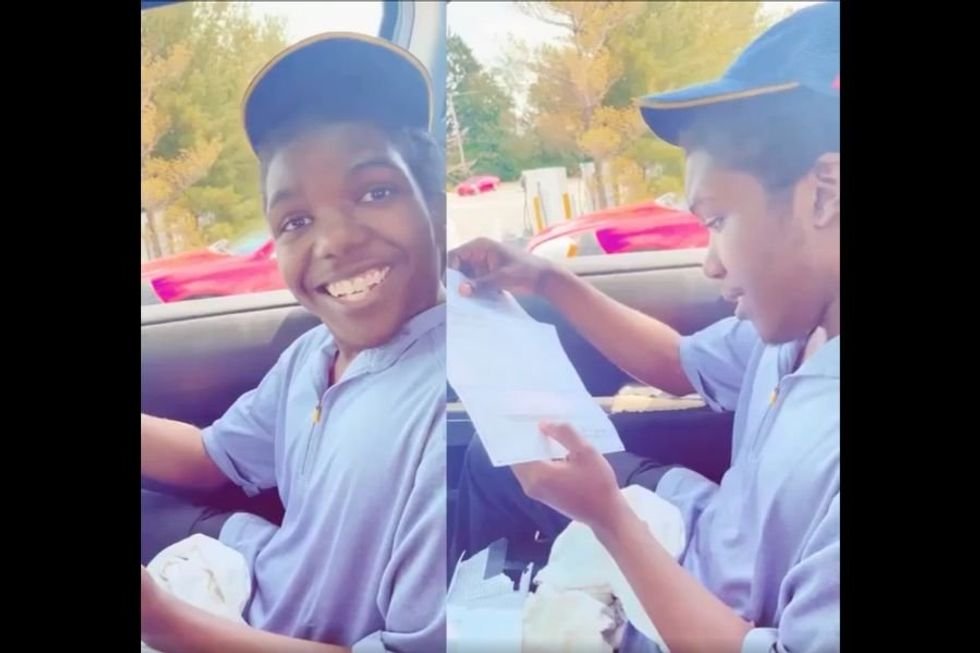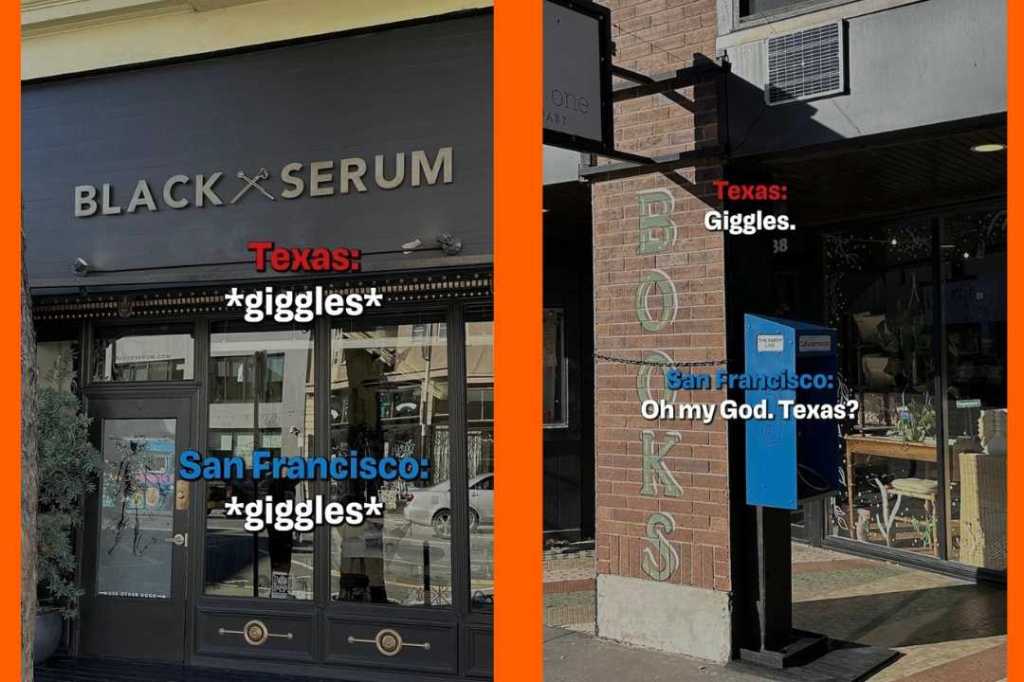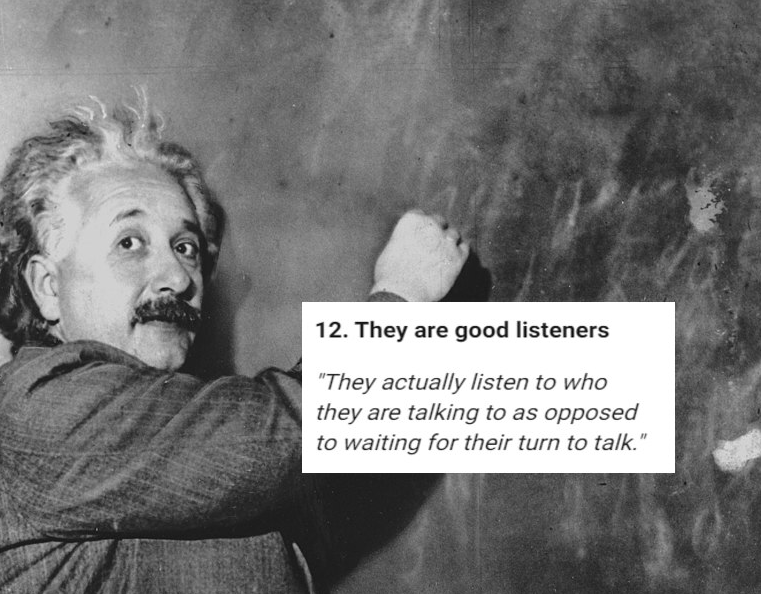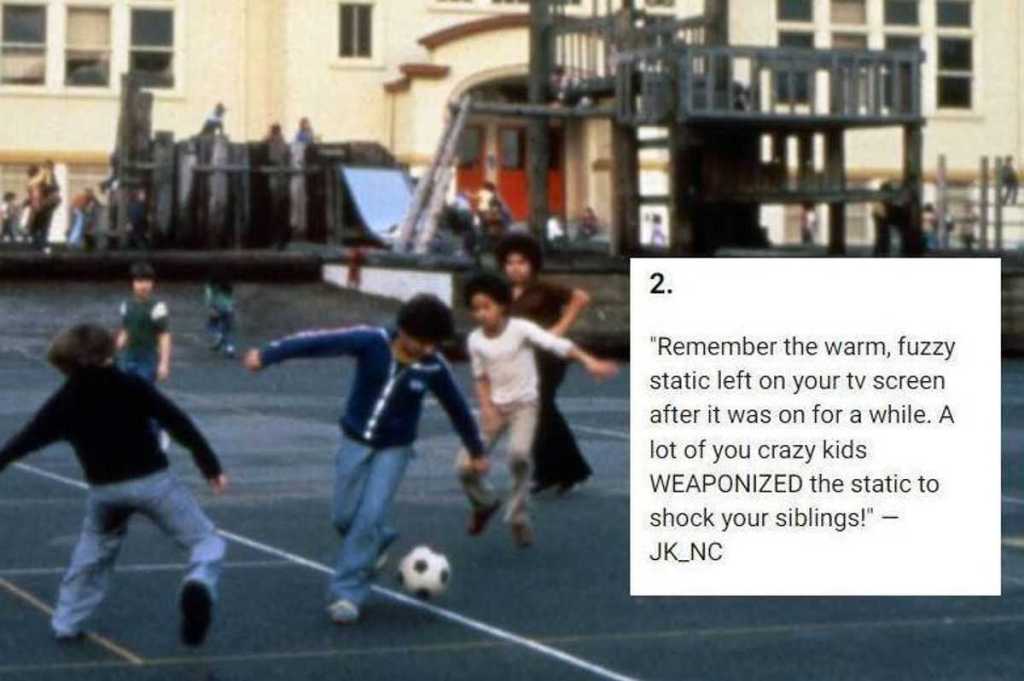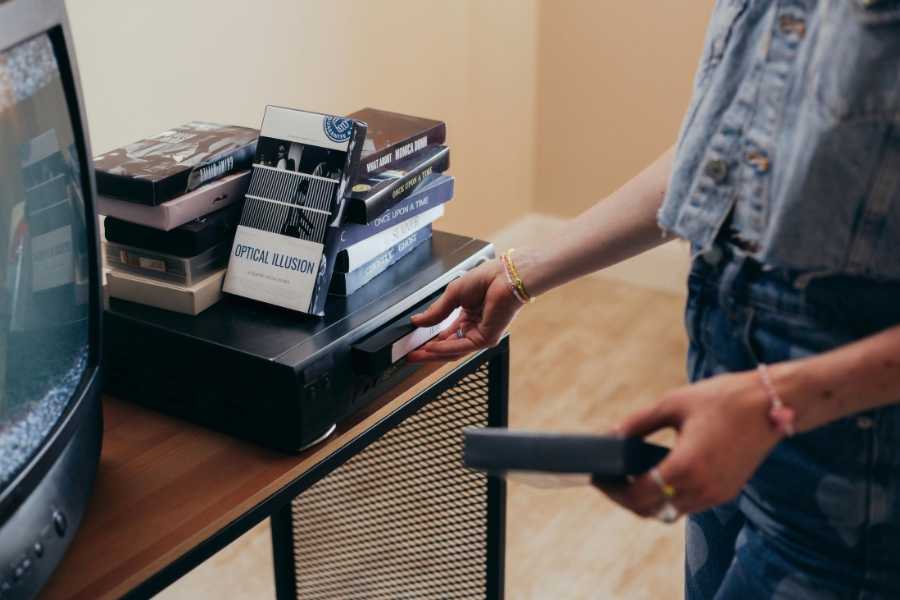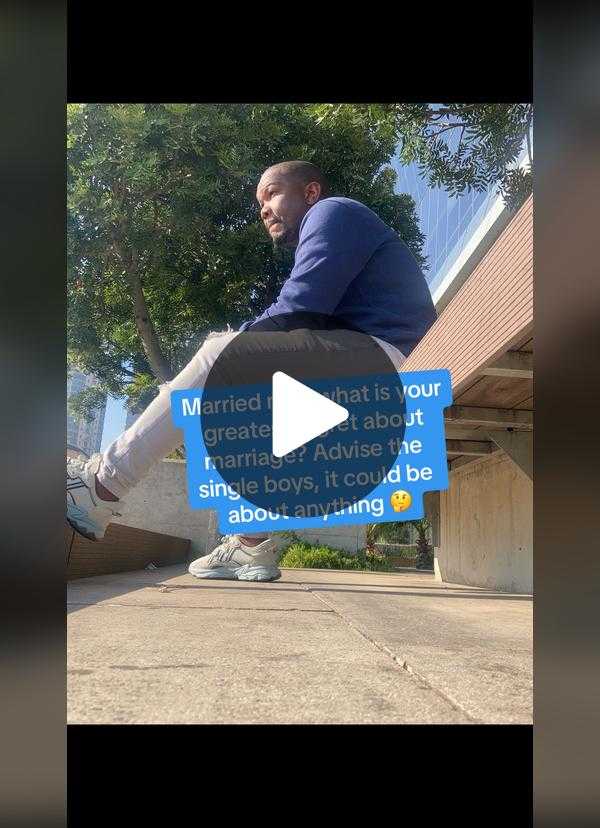We all know that phrases like “How’s it going?” and “How are you?” are mostly pleasantries.
It’s just how we say “Hello.” You’re not expected to answer any more than the person asking is expected to care.
But every once in a while, someone will surprise you. You’ll toss out a casual and totally insincere “How are you?” and the floodgates will open out of nowhere. “I’ve had the WORST DAY,” they’ll say.
I’ve always secretly envied people who can open up on a whim like that. It seems weirdly fun. And there might be a lot of psychological benefits to it.
So I tried it. For a week, I decided that when strangers asked how I was doing, I’d actually tell them.
But before I could start, a pretty important question occurred to me: Would I even know what to say? After all, I am a dude, and everyone knows dudes aren’t always super in touch with how we’re feeling.
Ronald Levant, a professor of counseling psychology at Akron University, told me a story about a man he once treated early in his career that sums up this whole thing pretty nicely:
“[He] came in complaining about how his son had stood him up for a father son hockey game. Being relatively naive back then, I said, ‘So, how did you feel about that?’ His answer was ‘Well, he shouldn’t have done it!’ I said again, ‘Yeah, he shouldn’t have done it, but how did you feel?’
“He just looked at me blankly.”
Levant recalled similar sessions where women, by contrast, were able to walk him — in detail — through their emotional reaction to a situation: how anger turned to disappointment turned to worry, and so on.
“Among the men I was treating or working with there was a singular inability for many of them to put their emotions into words,” Levant said.
As part of my project, I wanted to test Levant’s theory, to see what it would be like to, you know, actually try to express my feelings. As the king of non-answers, deflection, and “I’m fine, how are you?” I wanted to know what it would be like to talk about me.
It turned out to be much less simple than I thought.

Day One
I was on my way to my daughter’s daycare to drop off more diapers, and I was trying to think about how I felt at that specific moment. It was a beautiful sunny day. There was a guy on the sidewalk walking three huge, puffy dogs. It made me laugh.The day had been a bit of a rollercoaster. My 1-year-old daughter woke up all smiles. But by the end of breakfast, she had collapsed into an inconsolable heap of tears, and that was how she left the house that day: wailing in the backseat of my wife’s car. When I arrived at daycare, though, she ran to me and leapt into my arms. She laid her head on my chest and giggled as she stared into my eyes. It was a total turnaround and a wonderful midday boost to my mood.
On my way home, I stopped off at a grocery store to grab an energy drink and, potentially, to share this happy moment with a stranger.
I chose the line manned by a fast-talking, bubbly woman. And when I got to the front, she teed me up perfectly with a sincere: “How are you?”
“Hey, I’m good!” I said enthusiastically. In the next instant, though, she was onto other things. “Ma’am?” she yelled to a wandering woman behind me. “I can ring you up over here.”
Her attention swung back to me, but almost immediately, she was telling me my total. “That’ll be $2.03.”
The transaction moved at hyper-speed. The moment was gone. As I shuffled for my wallet, I considered just blurting it out anyway, “I just visited my daughter at daycare and she was so happy to see me and it was the freaking best!”
But a voice popped up in my head, and I couldn’t shake it: She’s not going to care. Why would she care?
So I said nothing, paid, and went home.
To understand why men and women often handle feelings differently, we have to look at society first.
I can’t help but think my wife would have had no trouble talking to the woman in the store. Why is it harder for me then? Are we wired differently? Is it a brain thing? A hormone thing?
Apparently, in the 1980s and ’90s, researchers had something of a breakthrough on this question. They became “stimulated by this idea that gender was something that was socially determined,” Levant explained. He noted that boys were being socialized differently than girls were, and it was making a big difference for them down the road.
In a TEDx Talk called “Unmasking Masculinity” Ryan McKelley, an associate professor of psychology at the University of Wisconsin La Crosse, echoed similar findings from his research.
First, he learned that infant and young boys surprisingly displayed more intensity and range of emotion than their female counterparts. “But that story starts to change over time,” he said.
Second, he looked at a series of studies polling men and women in America, which asked people to generate a list of emotions that are “culturally acceptable” for each sex. While the study found that women felt “allowed” to display nearly the entire emotional spectrum, men seemed to be limited to three primary feelings: anger, contempt, and pride.
But despite all these cultural “requirements” about emotion, it turns out that our brains aren’t processing things all that differently. McKelley says if you hook men and women up to equipment that measures things like heart rate, skin conductance, sweat, and breath rate, and then expose them to stimuli that can provoke strong emotions, “these gender differences disappear.”
“I do not deny there are biological differences,” McKelly told me in an interview. “However, the degree to which it influences all that other stuff, I believe, is overblown.”
My learning after talking to these researchers? Men DO feel feelings (yay!) but society isn’t doing us any favors when it comes to helping us learn how to express them.
Day Two
I was sitting in the sweltering parking lot outside a Home Depot when I decided I was going to do better than the day before.
I walked inside and stood in line at the customer service counter for what felt like an eternity. Finally, one of the tellers called me up. She had a shock of white curly hair and kind eyes. A grandmotherly type. “How can I help you?” she asked. Not the exact question I wanted, but we’ll see where it goes. “I have some returns,” I said.
I decided I was going to do better today.
We launched right into the specifics of what I was returning and why, and it was looking like I was about to strike out again. The transaction took a while so there was ample space to fill. Since she hadn’t asked me about my day, I took the initiative while she tapped impatient fingers along her computer waiting for it to load.
“How’s your day going so far?” I asked. She went on to tell me about how a big storm that rolled through nearly knocked out the store’s power and how the computers had been acting up ever since. “My day was going great until this!” she said playfully.
In my eagerness to share, I’d accidentally stumbled into a pretty pleasant conversation with a stranger. OK, so it was about computers and the weather, but it sure beats an awkward silence. She never did ask me how I was doing, and that’s OK.
But it did make me realize that talking about your own feelings is pretty damn hard, even when you’re going out of your way to try.

Day Three
Day three was tough. Outside it was gray and dreary and inside I felt about the same. Flat. Gray.
I was having trouble identifying the root of why I felt so, for lack of a better word, “blah,” so I Googled “how to find out what you’re feeling,” like I was some sort of robot trying to understand the human experience. “Pay attention to your physiology,” one article said. I felt totally normal and my heart rate was an unremarkable 80. What does that mean?
“Don’t think about it too much,” another article said. Well, shit.
As I read on about meditation and mindfulness and things of that sort, I started to get a little nervous. “What if I get too in touch with my emotions?” There’s something comforting about being a reasonably even-keeled guy without a lot of emotional highs and lows. I don’t want to go digging in the darkest recesses of my subconscious and unlock some terrible shit.
Apparently a lot of men feel like this.
McKelley described one man he treated who had severe anger issues and wasn’t exactly open to talking about his problems: “I asked him, ‘What do you find so subversive about crying?’ He said, ‘If I start, I’m afraid I’m going to curl up in a fetal position and never be able to stop.’”
I thought a little too much about this and decided I had to get out of the house.
I don’t want to go digging in the darkest recesses of my subconscious and unlock some terrible shit.
I headed out to grab a coffee at a local establishment (OK, it was a McDonald’s, but I really don’t need your judgment right now). There was a young, freckle-faced girl working the counter. She was probably 19. When it was my turn, she gave me a shy “Hello.”
“How are you?” I started. “Good. How are you?” she responded, on cue.
Since I hadn’t had any major emotional breakthroughs at that point, I just … told her the truth. “I just had to get out of the house a little bit. It’s so gray and crappy today and I just needed a break. You know?”
She gave me possibly the blankest stare I had ever seen in my life. I quickly filled the silence with my order — a large iced coffee. To go.
The more I learn, the more I realize there is so much more to this whole emotions thing than just “opening up.”
By the third day, I’d learned that men definitely feel things. Lots of things. But it’s what happens before those feelings bubble to the surface that accounts for the myth that dudes don’t have any emotions at all.
Think of it this way: Almost every single day, you take the same route driving home from work. And while driving is usually a conscious process that takes a lot of focus and effort, you could probably make that super-familiar drive home from work with barely any involvement from your brain at all. We sometimes call this “going on autopilot.” It’s the same way with breathing or blinking. Sure, you can control them if you want, but more often than not, they’re totally automatic.
And I’ve learned that it can be the same thing with suppressing emotions. For years and years, most men have been trained not to give any indication that we might be scared or lonely or nervous, and we push it down. If we do that enough, it can start to seem like we don’t feel those feelings at all.
It’s what happens before those feelings bubble to the surface that accounts for the myth that dudes don’t have any emotions at all.
McKelley expands on this idea in his TEDx Talk when he talks about the “male emotional funnel system.” Basically, he says all those emotions men might feel that make them vulnerable or that make them subject to judgment, or even being outcast, by their peers are transformed into anger, aggression, or silence. It’s how we avoid ridicule.
It’s how we survive.
But over time, not only do we lose the ability to understand our own true emotions — the emotions behind the anger or silence — but we get worse at figuring out and empathizing with what others are feeling too.
When it comes to emotional fluency, McKelley said, “it’s like speaking a foreign language. If you don’t use it, you lose it. It’s something you have to practice.”
Day Four
When I went to bed the previous night, the country was heartbroken over the death of Alton Sterling. When I woke up, we were heartbroken over the death of Philando Castile. Two black men dead at the hands of police within 48 hours.
But as devastated as I was, life goes on — right? I had work to do and, later, errands. In fact, we needed more diapers.
But the shootings were the only thing on my mind all day.
When I reached the cashier at the Walgreens down the street from my house, a small pack of size-five Pampers clutched to my side, I saw she was a young black girl. She asked how I was doing. And I told her, with all honesty, that I was sad.
We talked briefly about the news. She’d been at work and hadn’t heard much about Philando Castile yet. We paused so I could enter my phone number for reward points. There were no tears or hugs or anything like that — after all, we were standing at the front of a Walgreens and people were starting to form a line behind me.
She asked how I was doing. And I told her, with all honesty, that I was sad.
When I left, I don’t know if I felt any better. But I certainly didn’t feel worse. And talking to a real live human being about an awful tragedy felt a lot more meaningful than reading Facebook comments and Tweets.
So, on an awful, terrible, no-good day, I guess that was something.
While I worked on this project, I often wondered why all of this mattered. Do I really need to tell people what I’m feeling all the time?
And then I thought about our nation, and all the tragedies that we hear about on the news every day.
I thought about the 100 million men in America who, to varying degrees, have had their ability to empathize with the emotions of others slowly eroded over time because society tells them they cannot be vulnerable. I thought about the creep on the street chatting up a woman who clearly, visibly wants nothing to do with him. I thought about the catcallers who seem to be convinced they are paying women a compliment and are oblivious to how uncomfortable, even afraid, they’re making them.
I thought of the millions of men in America being conditioned from an early age to turn fear, helplessness, loneliness, shame, and guilt into two things: anger and aggression. I thought of the 80-plus mass shootings in America since 1982 and how almost all of them were committed by men. I thought about how many of those men might have been bullied, hurt, shamed, or humiliated and, perhaps, could think of no other outlet for those feelings than the barrel of a gun.
I thought about the millions of men in America who will never harm another person, but might funnel that anger and aggression inwards through alcohol or drug abuse or worse, with three and a half times more men dying by suicide than women.
To be extremely clear: There is no excuse for hurting another person, whether through harassment, rape, abuse, or gun violence. But when we talk about providing better mental health services in our country, maybe we ought to make sure we’re thinking of the next generation of otherwise healthy boys who need guidance about what to do with their emotions.
“If we’re not allowed to talk about [shame], we’re not allowed to express it, we’re not allowed to admit we’re experiencing it. And then you surround it with exposure to violence and seeing it modeled as a way to solve problems,” McKelley told me. “But women are bathed in the same violent cultural forces, so what’s the difference?”
“Until we can figure out a better way socially to help boys and men navigate feelings of shame, we’re going to continue to have problems.”
As bad as all the research sounds, there IS some good news.

My best advice for how all of the men I know can figure out what their feelings are? Give it a shot.
Many of us are risk-takers. We go skydiving, wakeboarding, speedboating, or even shopping-cart-riding (full-speed into a thorn bush on a rowdy Saturday night, amiright?).
But we won’t tell our best friend that we love them.
“The irony is men repeatedly score higher than women on average in risk-taking behaviors. And yet we won’t take those types of risks. Those emotional risks are terrifying for a lot of men. That’s probably the one thing at the end of the day that I suggest guys do,” McKelley said.
It might not always work out, but more often than not, he says, you’ll find so many other people are feeling the same way and just waiting for someone else to say it.
“It doesn’t require courage to hide behind a mask,” McKelley said in the closing minutes of his TEDx Talk. “What requires courage is being open and vulnerable no matter what the outcome.”
And as for me? I learned that talking about how I’m feeling, especially with people I don’t know or trust, can be pretty hard.
Throughout the week, there were a lot of voices inside me telling me not to do it.
It’ll be weird! They won’t care! They’re going to judge you!
And sometimes those voices were right. But as the week went along, it got a little bit easier to ignore them. And in the days since the “experiment” ended, I’ve found myself sharing just a little, tiny, minuscule bit more on a day-to-day basis.
What was most incredible was that I started to realize that the experts were right: This IS a skill. It’s something I can learn how to do, even as a self-described “nonemotional” guy. By taking “little risks” with my feelings, I am getting better and better at bypassing those instincts in me that want me to clam up and be the strong, stoic man.
I just hope I’ll have the courage to keep practicing.
But again, this isn’t just about me. And it’s probably not just about you either. It’s about the next generation of young people who will look to us (both men and women) for reassurance that men can feel, can talk about feeling, and can respond with things other than anger, aggression, or silence.
I want to leave you with a question, one I want you to really think about and answer as honestly as you possibly can. It might seem silly, but answering it could be one of the bravest things you’ll ever do.
All right. Are you ready? Here it goes:
How are you?
This article originally appeared on 07.27.16








